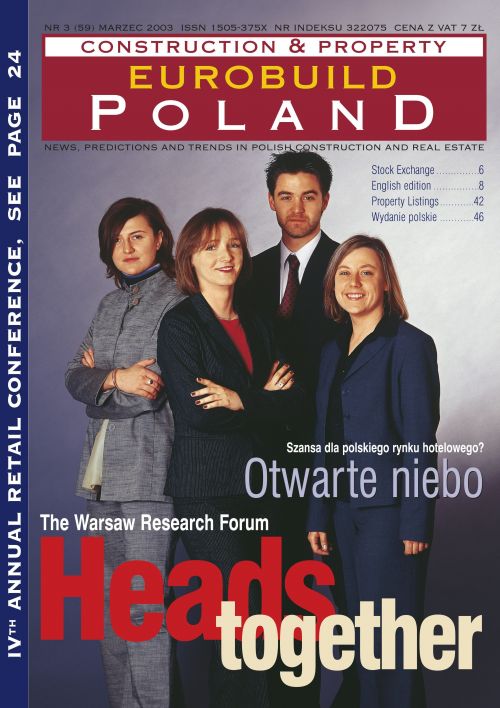Although it is not even three years old, it has plenty of experience to look back on. Its prospects for the future look good and its
plans are still bold but now more realistic.
The Warsaw Research Forum is very much alive and kicking
You need four to forum
"The Warsaw Research Forum has been operating for more or less two years
and has had the same aims since the very beginning," says Mathieu Giguere,
who is the only male and non-Pole in the WRF. "We analyse office data
together, we publish the same statistics and distribute them all over the
market. They are available to everyone and not only members of the Forum."
The Warsaw Resarch Forum consists of representatives from four real estate
agencies: Paulina Górska of CB Richard Ellis, Anna Staniszewska of DTZ, Elwira
Zielska of Jones Lang LaSalle and a Canadian, Mathieu Giguere of Cushman &
Wakefield Healey & Baker. They all agree that the original purpose of the
Forum was to enhance the quality of information delivered




























































